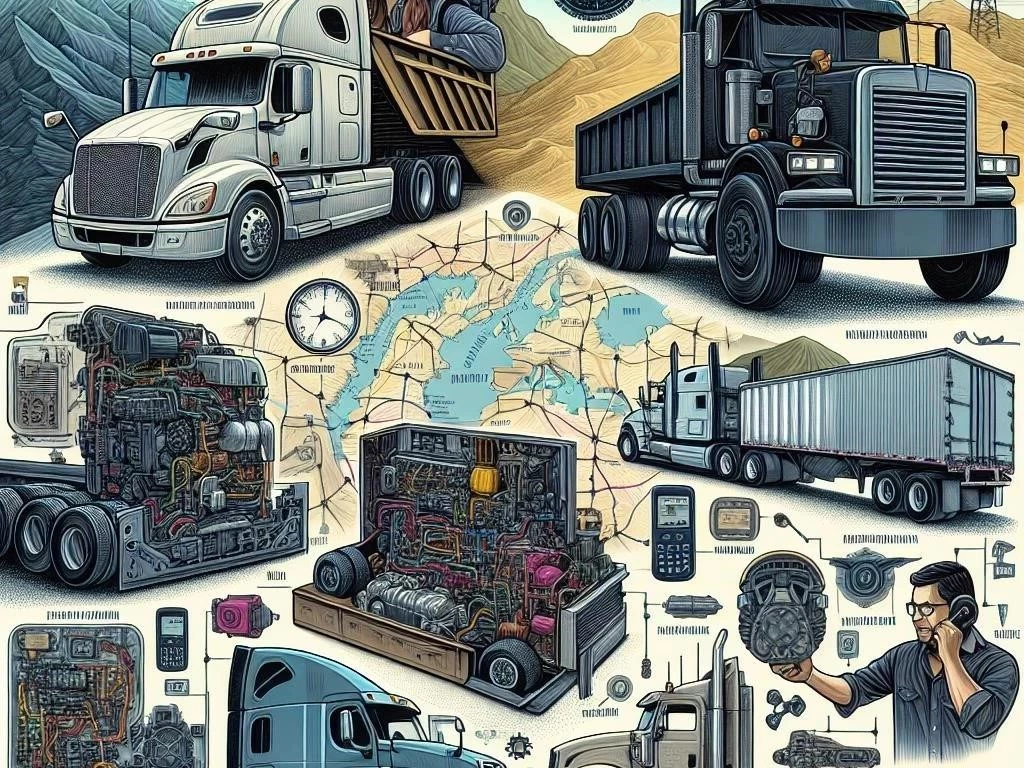
The trucking transportation sector plays a crucial role in the economy, facilitating efficient movement of goods, ensuring timely deliveries, and supporting various industries nationwide.
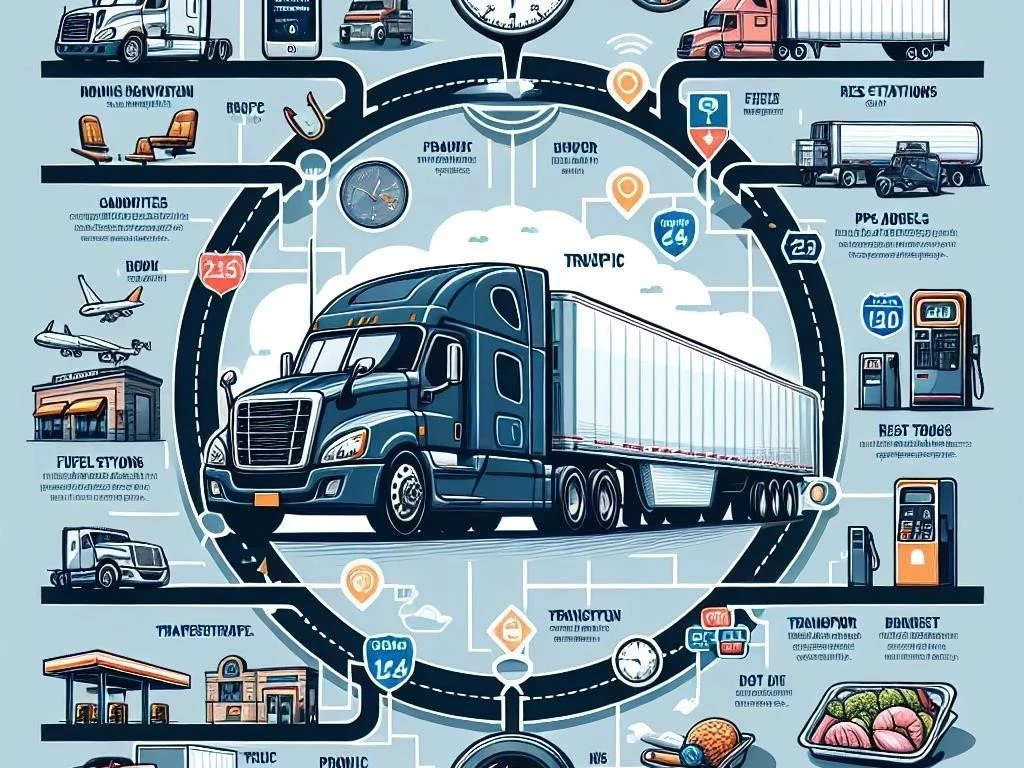
The trucking industry is a vital component of the global economy, facilitating the transportation of goods across vast distances. This sector encompasses various services, including freight transportation, logistics, and cargo shipping. Trucking companies operate a diverse fleet, from heavy-duty trucks for long-haul trucking to smaller vehicles for short-haul trucking. The industry relies on skilled truck drivers who ensure the timely delivery of cargo while adhering to transportation regulations and compliance standards. Effective fleet management and vehicle maintenance are essential for operational efficiency. The trucking industry continuously evolves, adopting new technologies and practices to improve delivery efficiency and optimize routes, ultimately enhancing the overall supply chain process.
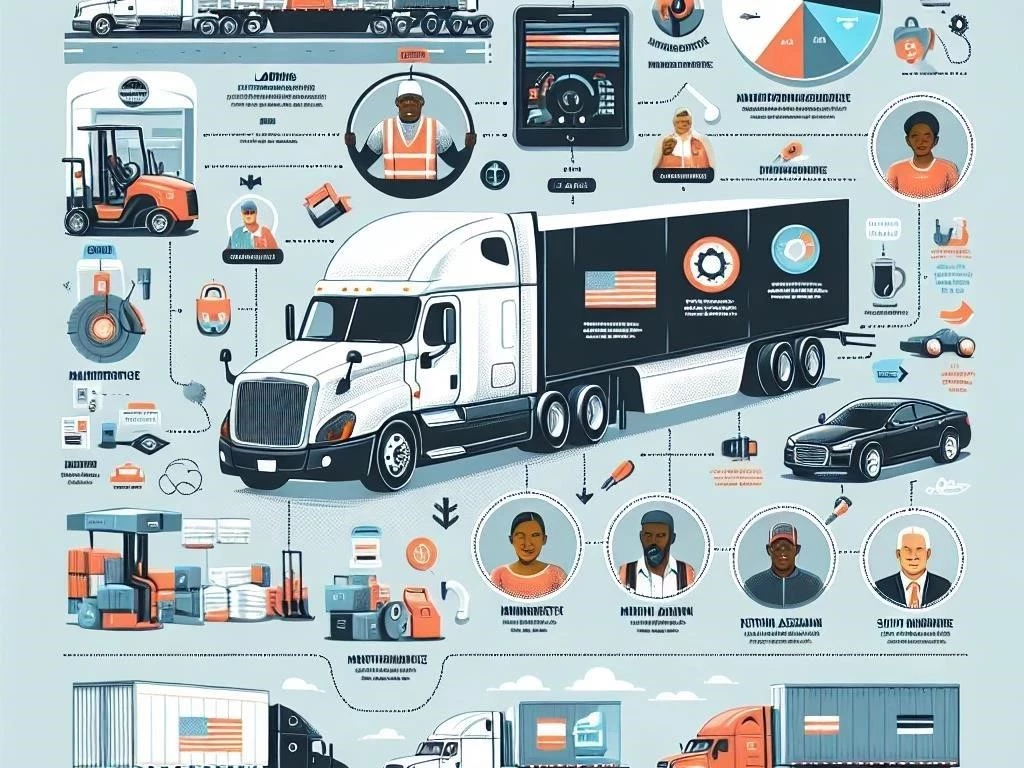
The Role of Trucking in Freight Transportation
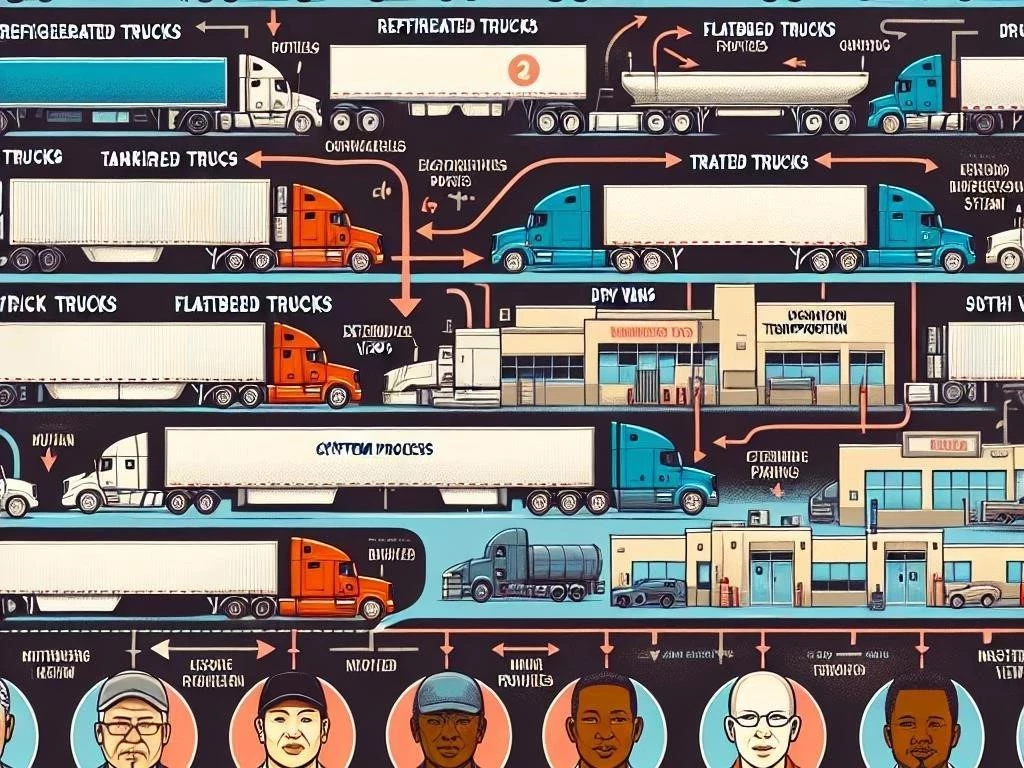
Trucking plays a crucial role in freight transportation, serving as the backbone of the supply chain by facilitating the movement of goods efficiently. This mode of transport allows for flexibility, enabling businesses to deliver products directly to customers and distribution centers. Trucking companies provide essential delivery services that cater to various industries, ensuring timely arrivals and boosting customer satisfaction. With the ability to transport a wide range of cargo, from perishable goods to heavy machinery, trucking adapts to the diverse demands of the market. Moreover, the integration of advanced trucking technology supports route optimization, reduces shipping costs, and enhances overall logistics management for improved performance.
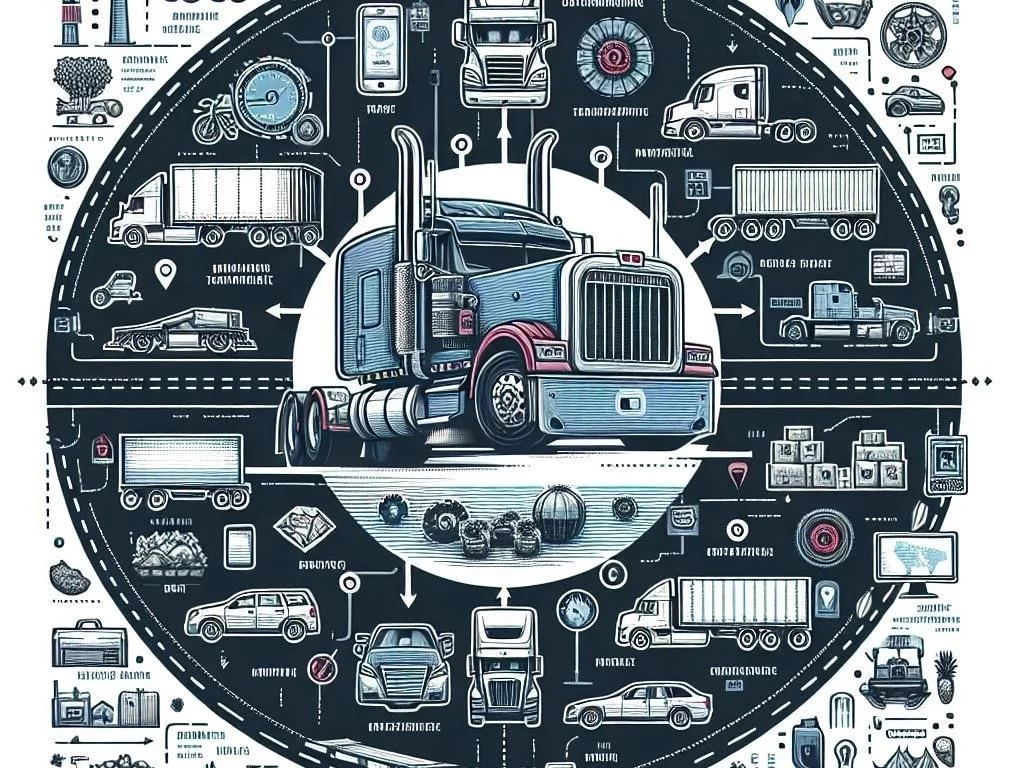
Understanding Logistics and Supply Chain Management
Logistics and supply chain management are essential to the trucking industry, ensuring goods movement is efficient and cost-effective. Effective logistics management optimizes the flow of materials, information, and finances throughout the supply chain. Trucking companies rely on precise coordination between various stakeholders, including freight brokers, suppliers, and customers, to streamline operations. By managing inventory levels and transportation schedules, trucking services can reduce delays and enhance delivery efficiency. Additionally, understanding demand forecasting and capacity planning allows companies to allocate resources effectively. The integration of technology in logistics further supports real-time tracking and data analysis, ultimately improving decision-making processes and ensuring compliance with transportation regulations and safety standards.
3.1 The Importance of Logistics in Trucking
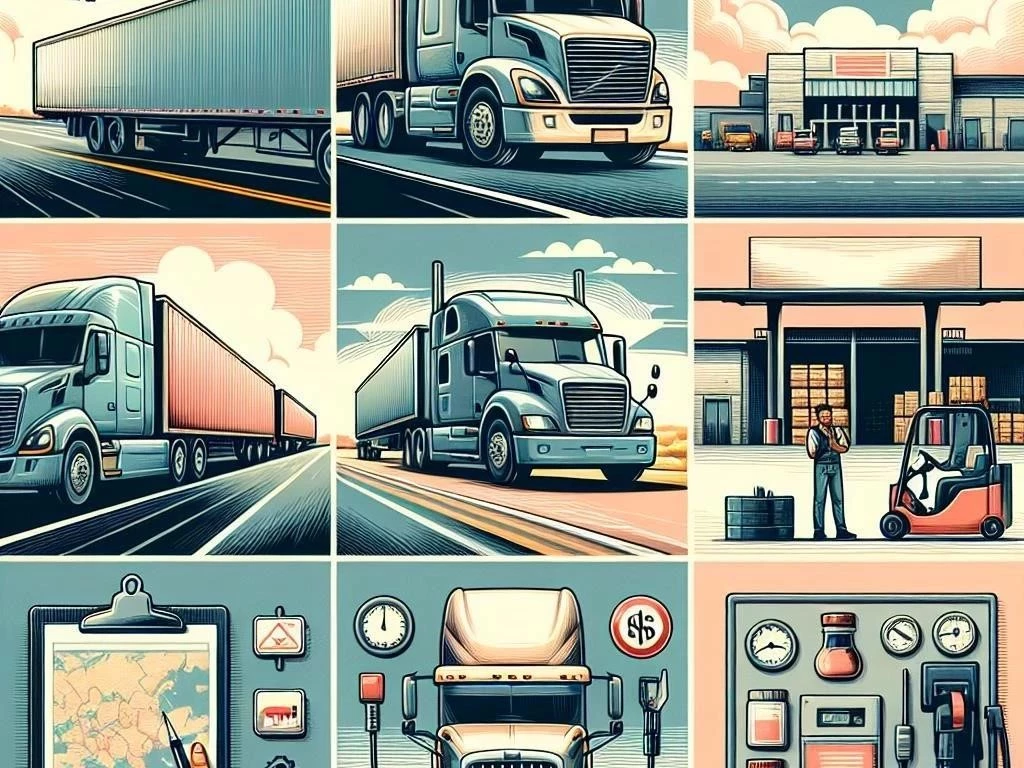
Logistics is integral to the trucking industry, as it directly influences the efficiency and effectiveness of freight transportation. Proper logistics management ensures that cargo is delivered on time, minimizing delays and enhancing customer satisfaction. By coordinating the movement of goods, trucking companies can optimize routes, reduce shipping costs, and increase overall delivery efficiency. Additionally, logistics facilitates the management of inventory levels, helping businesses maintain adequate stock without incurring excess costs. The integration of advanced logistics technology, such as tracking systems and route optimization software, further enhances operational capabilities. Ultimately, a well-structured logistics framework supports sustainable growth and competitiveness within the trucking sector.
3.2 How Supply Chain Affects Trucking Companies
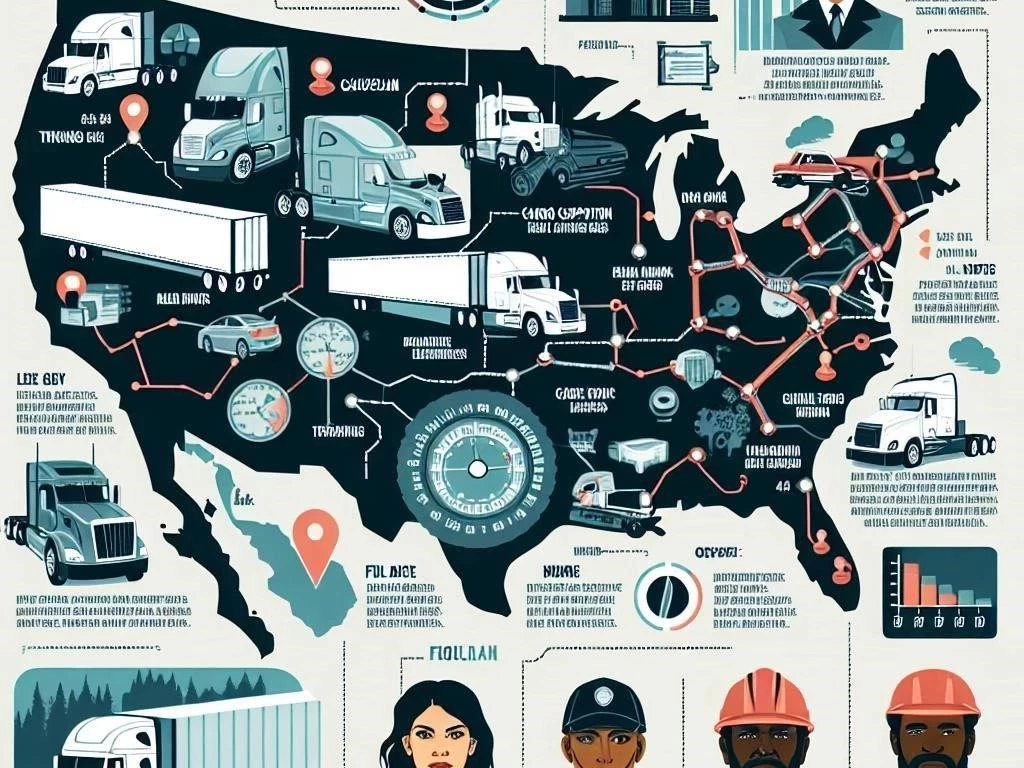
The supply chain significantly impacts trucking companies, shaping their operations and profitability. A well-optimized supply chain ensures that trucking services align with customer demand, allowing for timely deliveries while minimizing costs. Factors such as inventory levels, production schedules, and distribution networks determine the volume and frequency of shipments. Additionally, effective communication among supply chain partners enhances coordination, reducing delays and improving overall service quality. Trucking companies must adapt to fluctuations in demand and market trends, which directly influence shipping logistics and route planning. Consequently, a responsive supply chain enables trucking firms to enhance their competitive edge and meet the evolving needs of their clients.
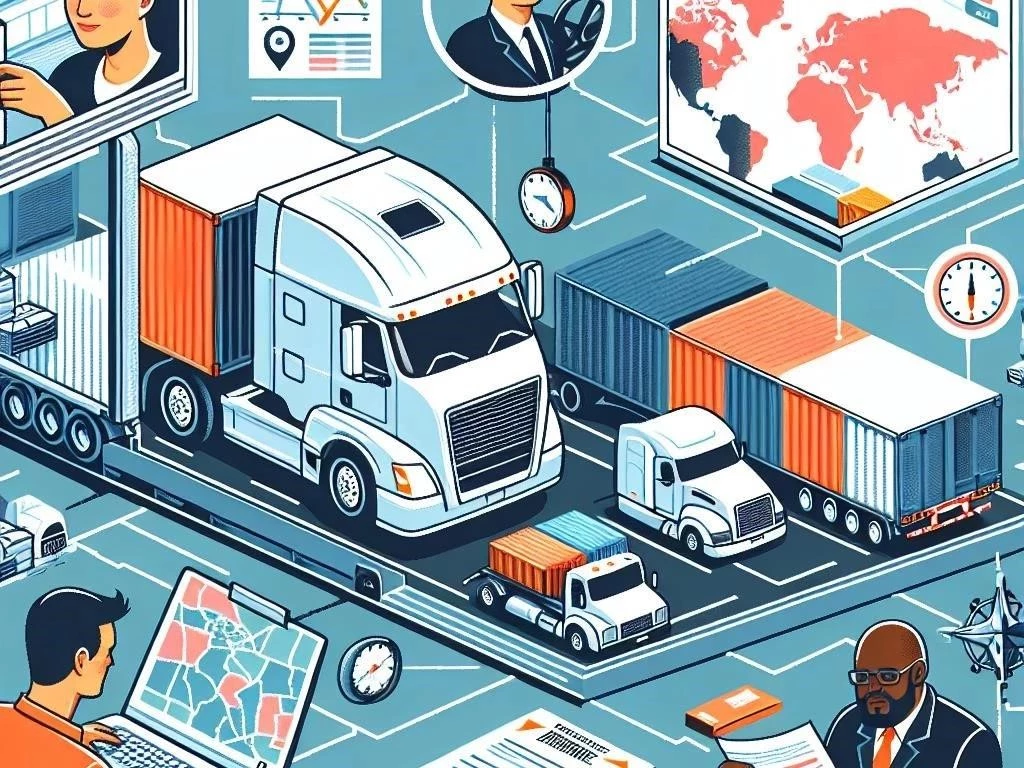
Types of Trucking Services
Trucking services are diverse, catering to various cargo types and delivery requirements. Long-haul trucking involves transporting goods over long distances, often across states or regions, providing essential services for businesses with nationwide operations. In contrast, short-haul trucking focuses on local deliveries, catering to businesses that require quick and efficient transport within a limited area. Additionally, specialized trucking services address unique cargo needs, such as refrigerated transport for perishables or flatbed services for oversized items. Delivery services also differ, with options for expedited, scheduled, or on-demand shipments. Understanding the various types of trucking services enables clients to choose the most suitable option for their specific logistics needs.
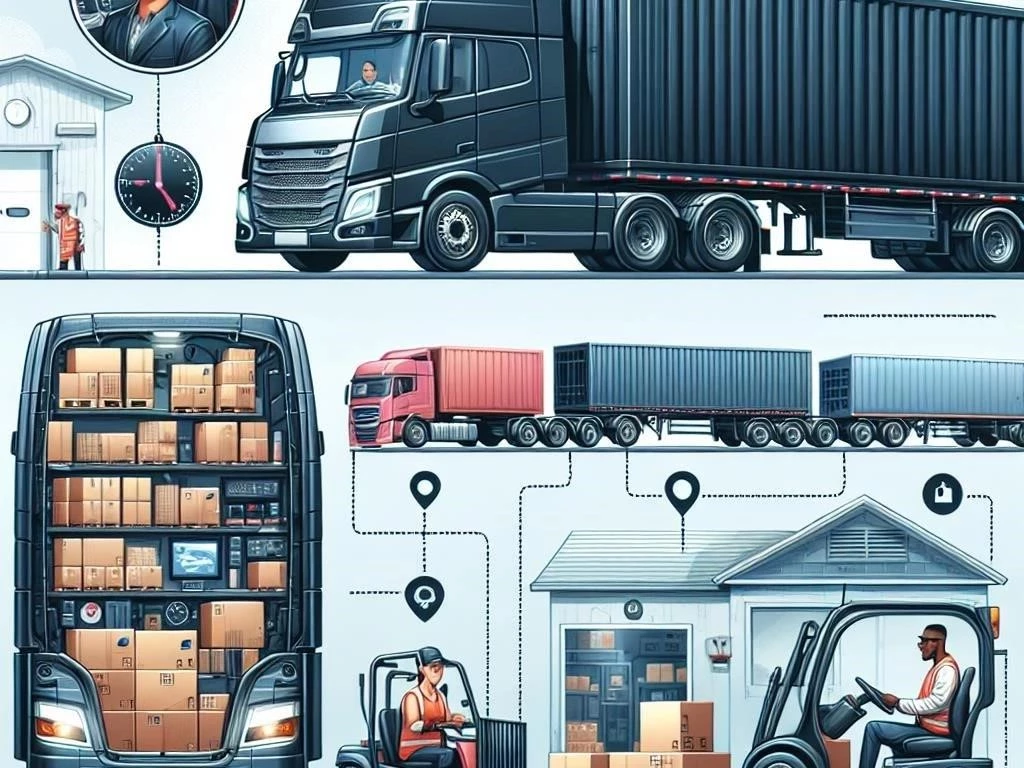
4.1 Long-Haul Trucking
Long-haul trucking is a critical segment of the trucking industry, involving the transportation of goods over extensive distances, often exceeding 250 miles. This service is vital for connecting manufacturers, suppliers, and retailers across regions and states. Long-haul trucking enables businesses to efficiently move large quantities of cargo, providing essential support for the supply chain. Truck drivers in this sector typically spend extended periods on the road, requiring proper vehicle maintenance and adherence to transportation regulations. The industry has seen advancements in trucking technology, improving route optimization and fuel efficiency. As a result, long-haul trucking continues to play a significant role in ensuring timely delivery and customer satisfaction.
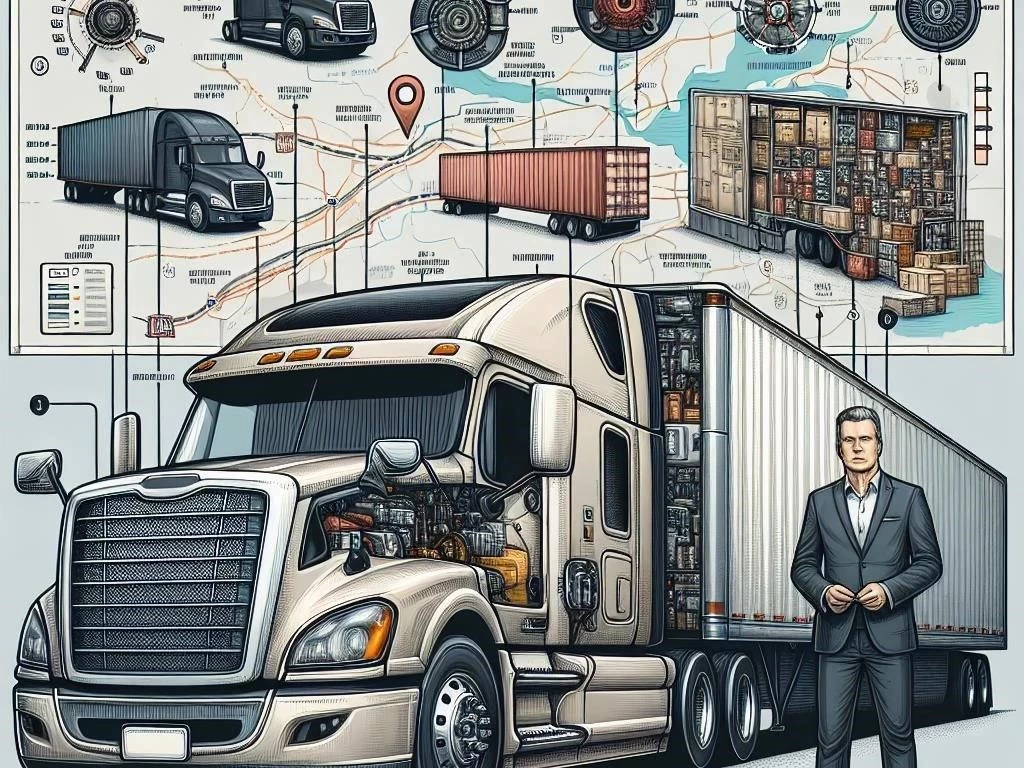
4.2 Short-Haul Trucking
Short-haul trucking refers to transportation services that cover relatively shorter distances, typically under 250 miles. This type of trucking is essential for businesses that require fast delivery of goods within local or regional markets. Short-haul trucking allows companies to maintain inventory levels and respond quickly to customer demands, ensuring timely deliveries. The flexibility of short-haul services often supports just-in-time logistics strategies, enhancing delivery efficiency. Truck drivers in this sector generally have more predictable schedules and can return home daily, improving job satisfaction. This segment of the trucking industry also benefits from route optimization and effective fleet management, helping to reduce shipping costs and improve service reliability.
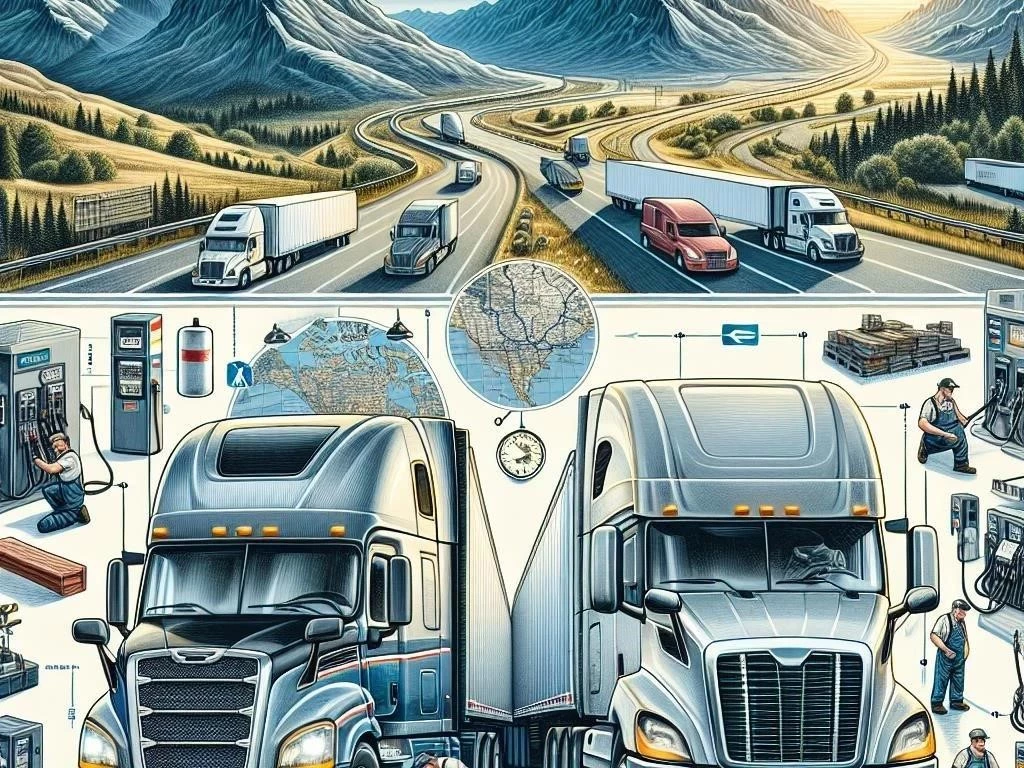
4.3 Delivery Services
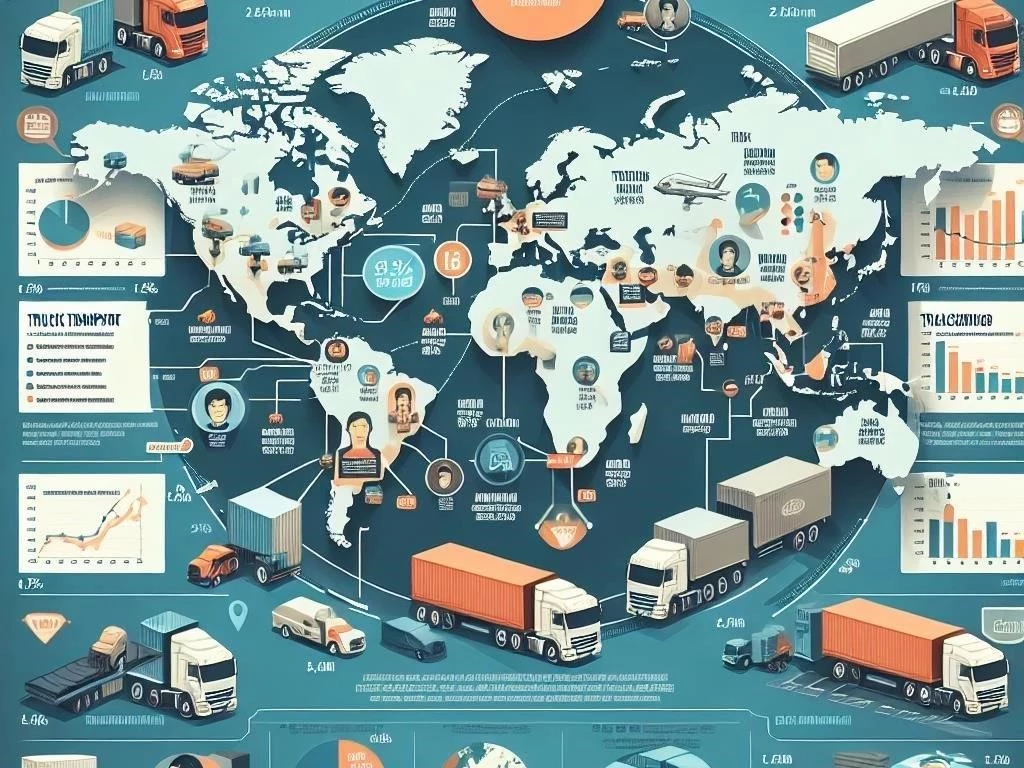
Delivery services in the trucking industry are pivotal for ensuring that goods reach consumers and businesses in a timely manner. These services encompass a variety of transportation options, including express shipping, scheduled deliveries, and on-demand logistics solutions. Trucking companies often tailor their delivery services to meet specific customer needs, allowing for flexibility in cargo types and shipping schedules. Effective delivery services rely on route optimization and real-time tracking technology to enhance delivery efficiency and reduce shipping costs. Additionally, maintaining a focus on customer service and communication helps build trust and satisfaction. Ultimately, robust delivery services play a crucial role in supporting the overall supply chain and logistics framework.
Key Components of Trucking Operations
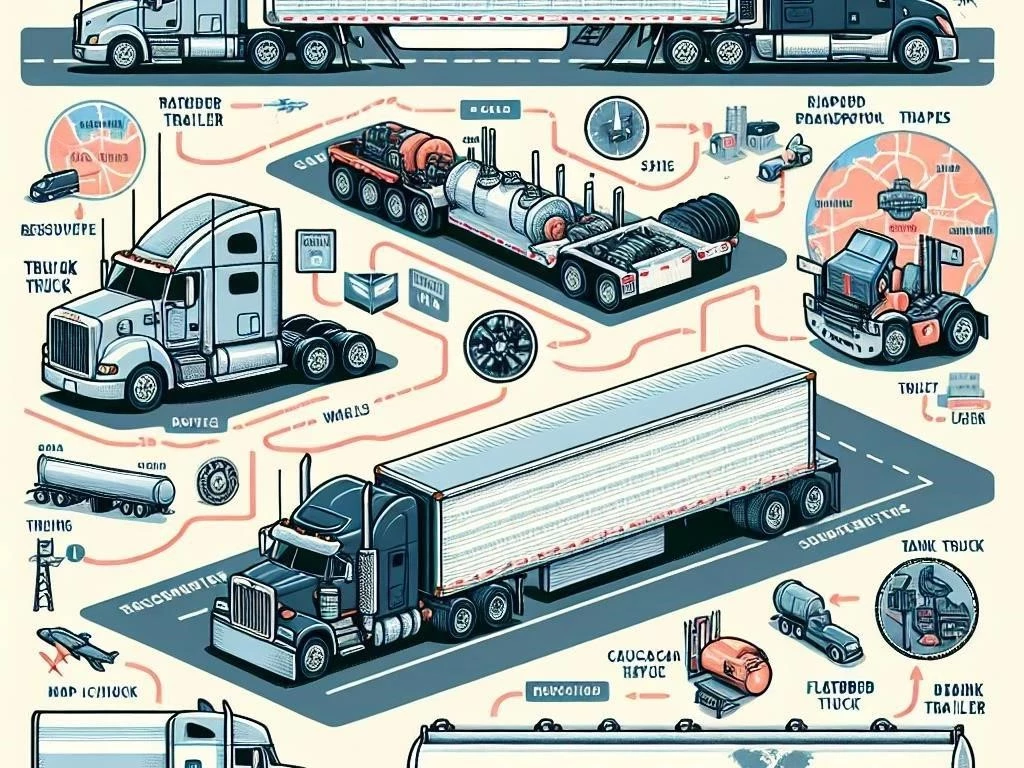
Effective trucking operations rely on several key components that contribute to overall efficiency and success. First, vehicle maintenance is crucial for ensuring that trucks are safe and reliable, minimizing downtime and repair costs. Second, fleet management plays a significant role in optimizing resource allocation, scheduling, and route planning, leading to improved delivery performance. Additionally, the role of truck drivers is vital, as they are responsible for transporting goods safely and adhering to transportation regulations. Proper training and support for drivers enhance safety and compliance. Finally, integrating technology into operations, such as tracking systems and logistics management software, boosts visibility and efficiency across all stages of trucking operations.
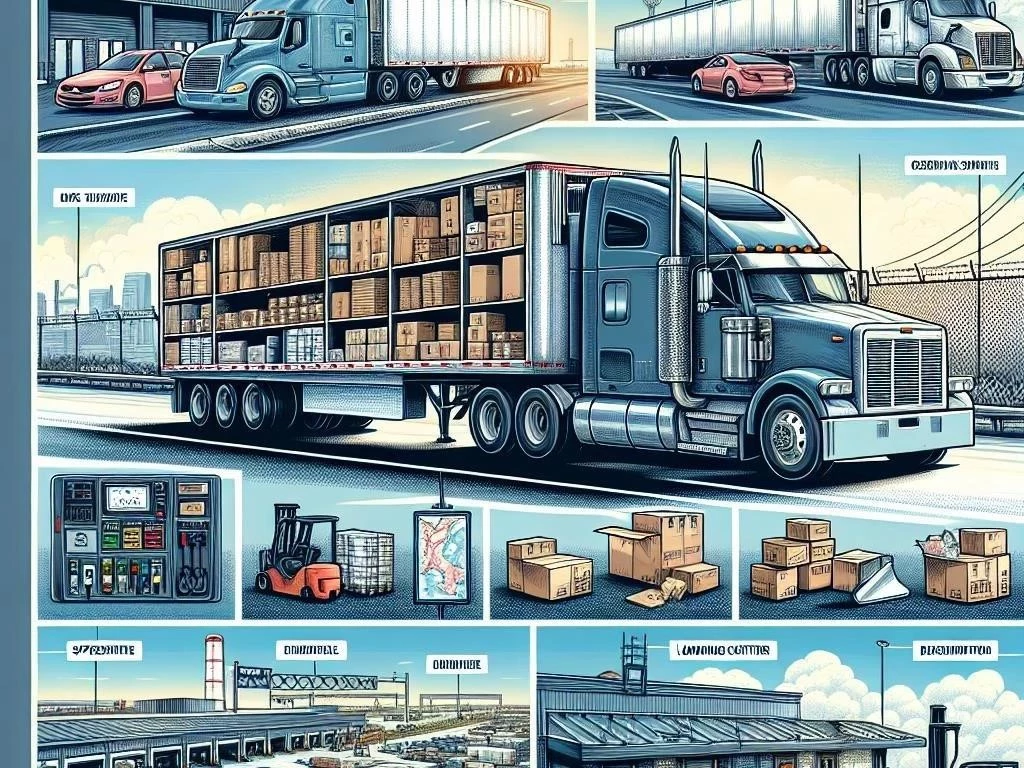
5.1 Vehicle Maintenance
Vehicle maintenance is a critical aspect of trucking operations, ensuring that trucks remain safe, reliable, and efficient on the road. Regular inspections and maintenance schedules help identify potential issues before they escalate, minimizing costly breakdowns and downtime. Key maintenance tasks include checking fluid levels, brakes, tires, and lights, as well as performing routine engine diagnostics. Proper vehicle maintenance not only enhances safety but also extends the lifespan of heavy-duty trucks, thereby improving overall fleet management. Additionally, adhering to transportation regulations and compliance standards regarding vehicle condition is essential for legal operation. Ultimately, prioritizing vehicle maintenance contributes to operational efficiency and enhances customer satisfaction in freight transportation.
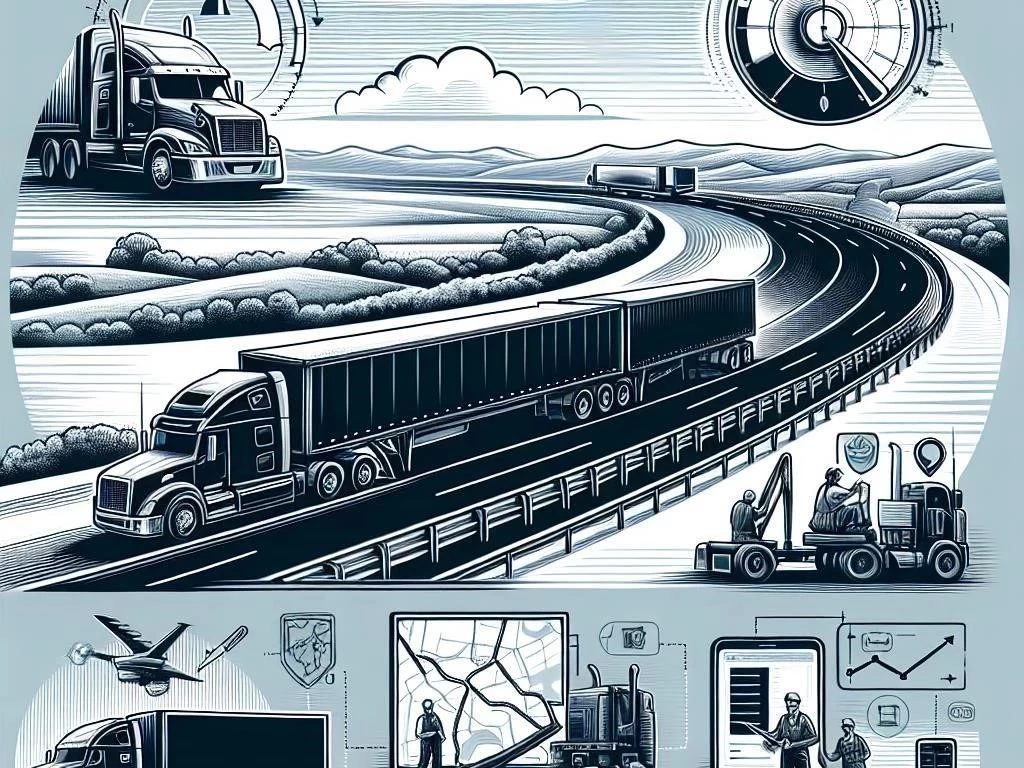
5.2 Fleet Management
Fleet management is a crucial component of trucking operations, focusing on optimizing the use of vehicles and resources to enhance efficiency. This process involves tracking vehicle performance, scheduling maintenance, and monitoring fuel consumption to reduce costs. Effective fleet management also includes route optimization, which helps minimize delivery times and improve customer satisfaction. By leveraging advanced technology, such as GPS tracking and telematics, trucking companies can gain real-time insights into their fleet’s performance, allowing for informed decision-making. Additionally, managing driver schedules and compliance with transportation regulations ensures safety and operational efficiency. Ultimately, effective fleet management contributes significantly to the overall success of trucking companies in the competitive logistics landscape.
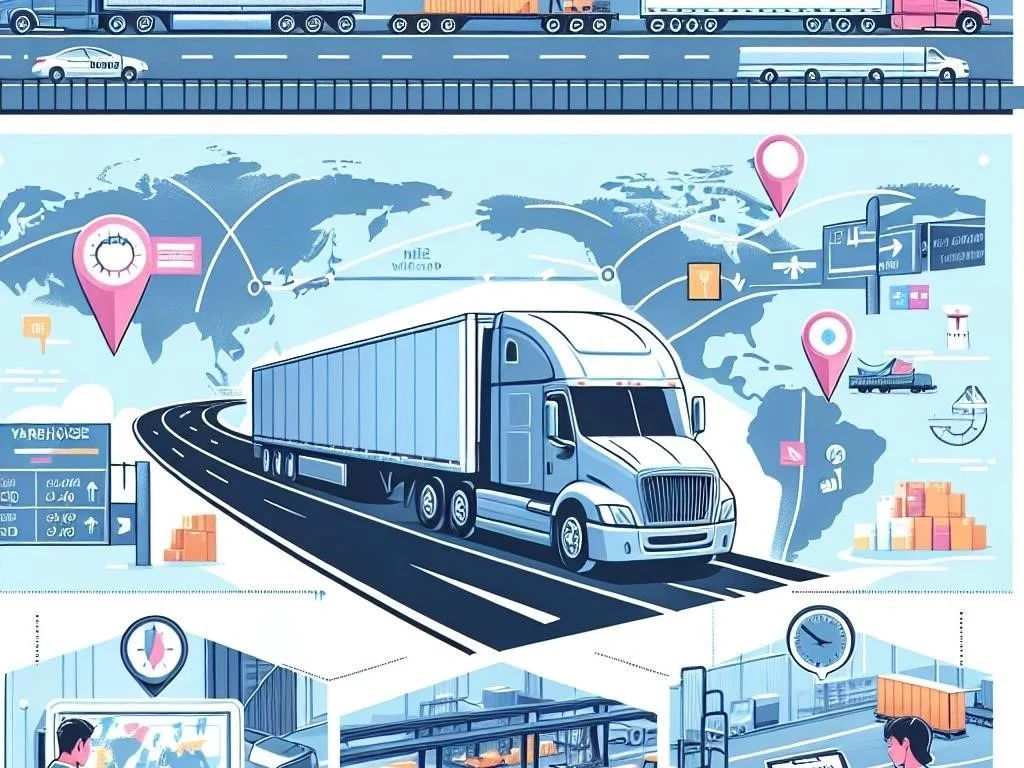
5.3 Truck Drivers’ Role and Responsibilities
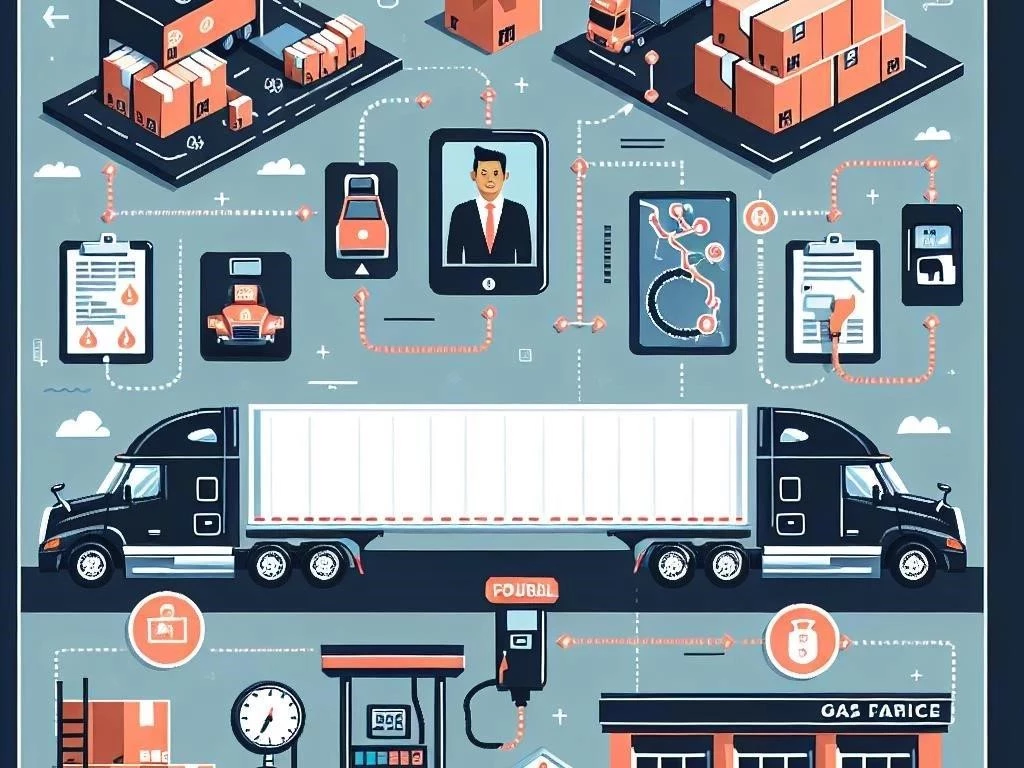
Truck drivers play a vital role in the trucking industry, responsible for transporting goods safely and efficiently. Their primary responsibilities include adhering to transportation regulations, ensuring compliance with safety standards, and maintaining accurate logs of their driving hours. Drivers must conduct pre-trip inspections to verify that their vehicles are in optimal condition, minimizing the risk of breakdowns. They also need to navigate various routes, adapting to changing conditions and traffic regulations to ensure timely deliveries. Additionally, effective communication with dispatchers and other team members is essential for coordinating logistics and addressing any challenges that arise. Ultimately, skilled truck drivers are crucial to the success and reliability of freight transportation.
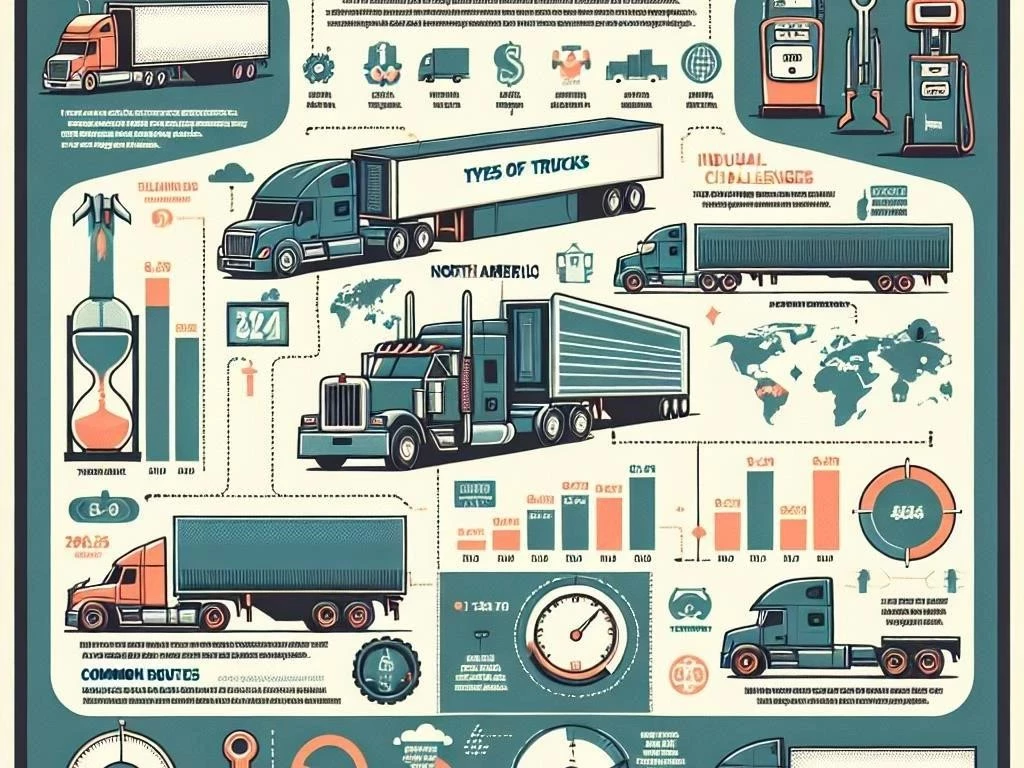
Transportation Regulations Impacting the Industry
Transportation regulations significantly impact the trucking industry, ensuring safety, compliance, and environmental standards are upheld; These regulations encompass various aspects, including vehicle maintenance, driver qualifications, and hours of service, which dictate how long drivers can operate their vehicles without rest. Compliance with these regulations is essential for maintaining operational licenses and avoiding penalties. Additionally, regulations regarding cargo securement and weight limits help prevent accidents and enhance road safety. The trucking industry must also adapt to evolving environmental regulations aimed at reducing emissions and promoting sustainability. Ultimately, understanding and adhering to transportation regulations is crucial for trucking companies to operate efficiently and maintain public safety in freight transportation.
6.1 Compliance Standards for Trucking
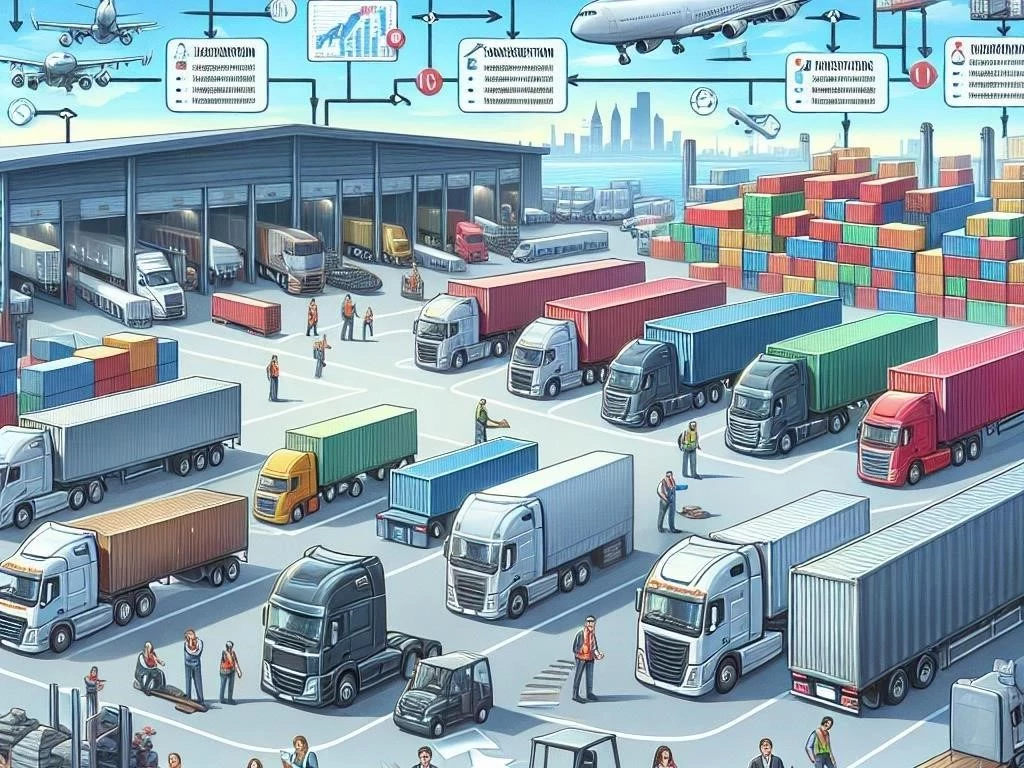
Compliance standards for trucking are essential for maintaining safety and operational integrity within the industry. These standards include regulations set by the Federal Motor Carrier Safety Administration (FMCSA), which governs driver qualifications, vehicle maintenance, and operational practices. Trucking companies must ensure their drivers possess valid commercial driver’s licenses and undergo regular training to adhere to safety protocols. Additionally, companies are required to maintain accurate records of vehicle inspections, maintenance schedules, and hours of service to comply with legal requirements. Failure to meet compliance standards can result in significant penalties, affecting a company’s reputation and operational capabilities. Thus, adhering to these standards is crucial for success and safety in trucking.
6.2 Transportation Safety Regulations
Transportation safety regulations are critical in the trucking industry, aimed at minimizing accidents and ensuring the safety of drivers, cargo, and the public. These regulations encompass various aspects, including vehicle inspections, driver training, and operational protocols. For instance, regulations mandate regular vehicle maintenance checks to prevent mechanical failures that could lead to accidents. Additionally, hours of service regulations limit the time drivers can operate vehicles without rest, reducing fatigue-related incidents. Compliance with safety standards, such as the use of seat belts and proper cargo securement, further enhances safety on the road. Ultimately, adhering to transportation safety regulations is vital for fostering a safe and efficient trucking environment.

Costs Associated with Freight Transportation
Costs associated with freight transportation in the trucking industry can significantly impact overall logistics expenses. These costs include fuel, vehicle maintenance, driver wages, and insurance, which must be carefully managed to maintain profitability. Fuel costs, often fluctuating, represent a substantial portion of operational expenses, prompting companies to seek fuel-efficient vehicles and optimized routes. Additionally, vehicle maintenance is essential for ensuring reliability and safety, as neglecting this can lead to costly repairs and downtime. Other factors influencing shipping costs include tolls, permits, and regulatory compliance expenses. Understanding and managing these costs effectively is crucial for trucking companies to remain competitive in the ever-evolving logistics landscape.

7.1 Understanding Shipping Costs
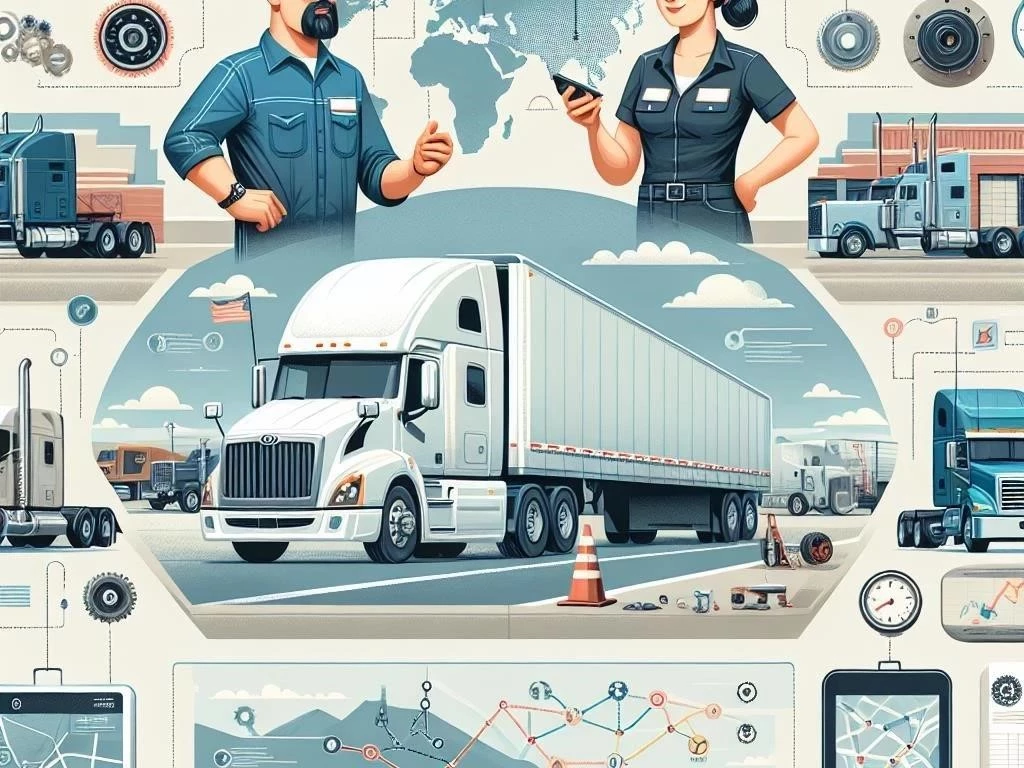
Understanding shipping costs is vital for trucking companies and clients alike, as these costs directly affect profitability and budgeting. Shipping costs encompass various factors, including distance, weight, and cargo type, which all contribute to pricing structures. Fuel surcharges can also impact overall shipping expenses, fluctuating based on current fuel prices. Companies must consider additional costs such as tolls, permits, and loading/unloading fees when calculating total shipping expenses. Additionally, route optimization plays a crucial role in minimizing costs by maximizing fuel efficiency and reducing travel time. By comprehensively understanding shipping costs, companies can make informed decisions, negotiate better rates, and enhance their overall logistics strategies.
7.2 Factors Influencing Shipping Logistics
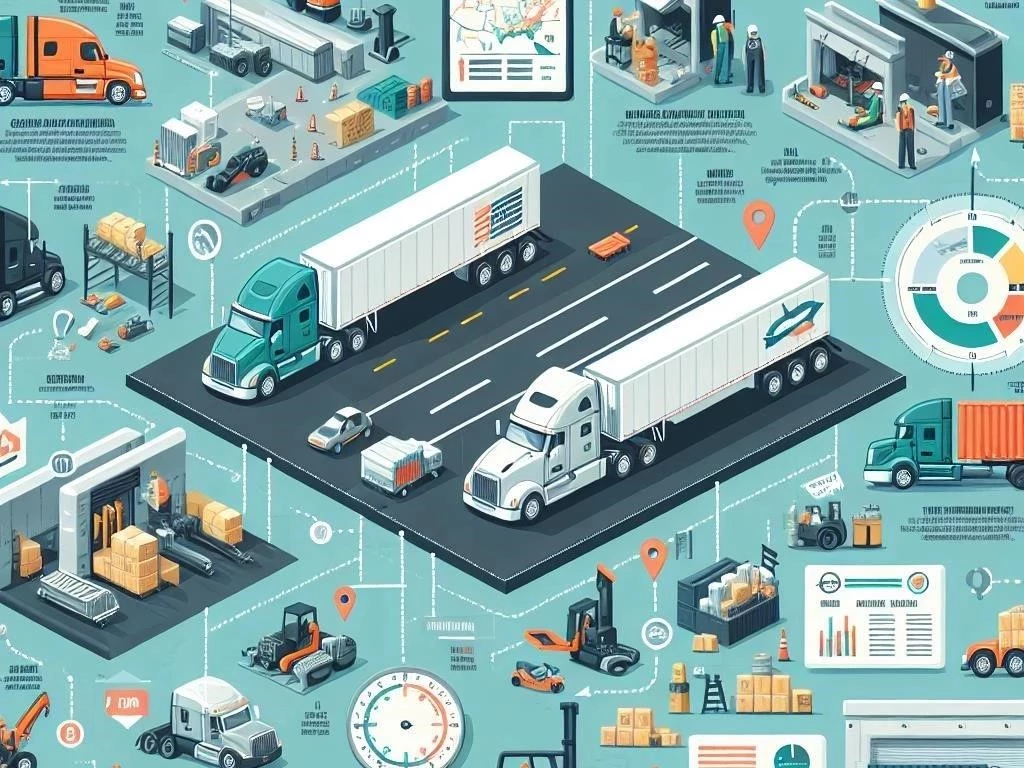
Several factors influence shipping logistics in the trucking industry, impacting efficiency and costs. One significant factor is route optimization, which ensures timely deliveries while minimizing fuel consumption and expenses. Weather conditions also play a role, as adverse weather can delay shipments and affect safety. Additionally, traffic patterns and road conditions must be considered when planning routes to avoid congestion and potential delays. The type of cargo being transported, including its weight and dimensions, influences logistics decisions, as certain loads may require specialized equipment or handling. Lastly, compliance with regulations and industry standards is essential, ensuring that all logistics operations adhere to legal requirements and safety protocols.
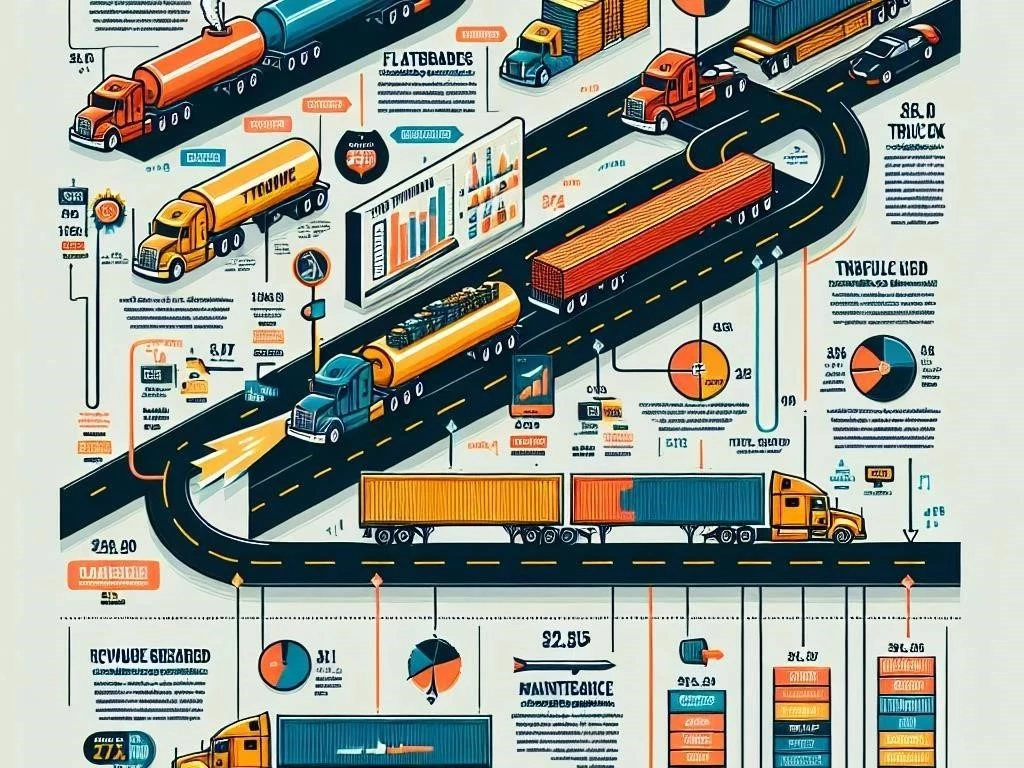
Route Optimization in Trucking
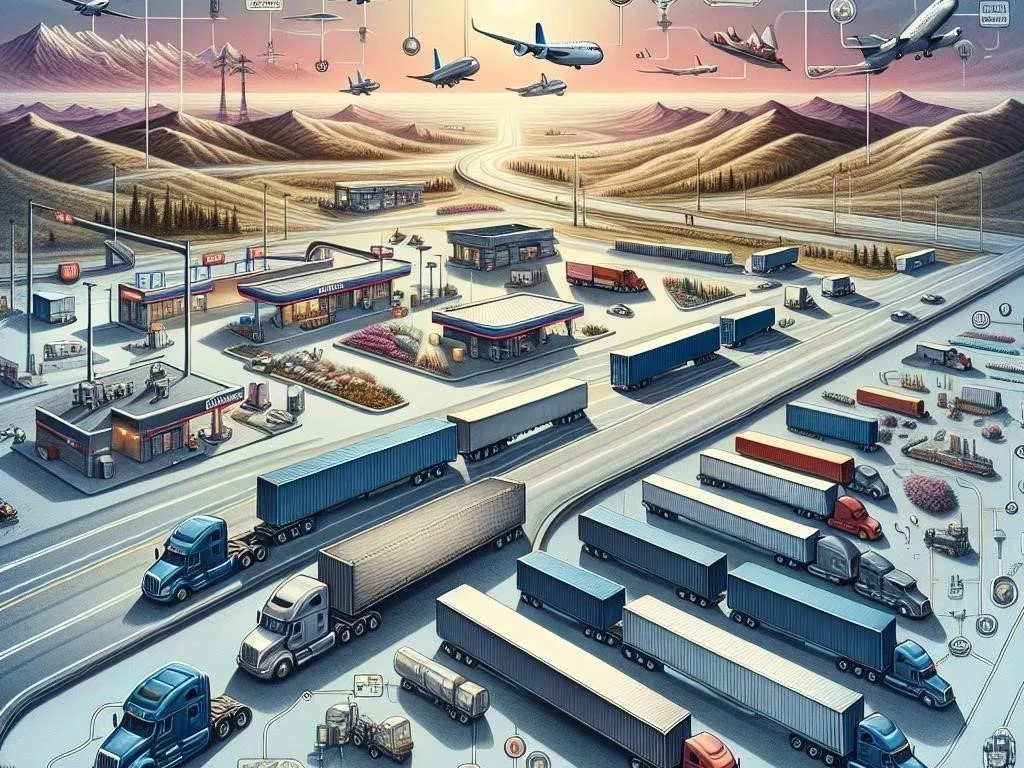
Route optimization in trucking is essential for enhancing efficiency and reducing operational costs. By analyzing various routes, trucking companies can determine the most effective paths for their drivers, saving time and fuel. Advanced technologies, such as GPS and route planning software, help identify optimal routes based on real-time traffic conditions, road closures, and weather patterns. Additionally, optimizing routes can improve delivery times, leading to increased customer satisfaction. Factors like load distribution and vehicle capacity must also be considered, ensuring that trucks operate within their weight limits. Ultimately, effective route optimization contributes to lower shipping costs and improved overall performance in freight transportation.
8.1 Strategies for Effective Route Planning
Implementing effective route planning strategies is crucial for optimizing trucking operations and enhancing efficiency. First, utilizing advanced routing software can analyze traffic patterns, road conditions, and potential hazards, enabling informed decision-making. Second, incorporating historical data can help predict traffic congestions and delays, facilitating proactive adjustments. Additionally, considering load capacity and delivery windows is essential for maximizing vehicle utilization while meeting customer expectations. Regular communication with drivers about route changes or challenges can also improve adaptability. Furthermore, employing a combination of short-haul and long-haul routes can optimize fuel consumption. Ultimately, these strategies contribute to reducing shipping costs and improving overall logistics performance in freight transportation.
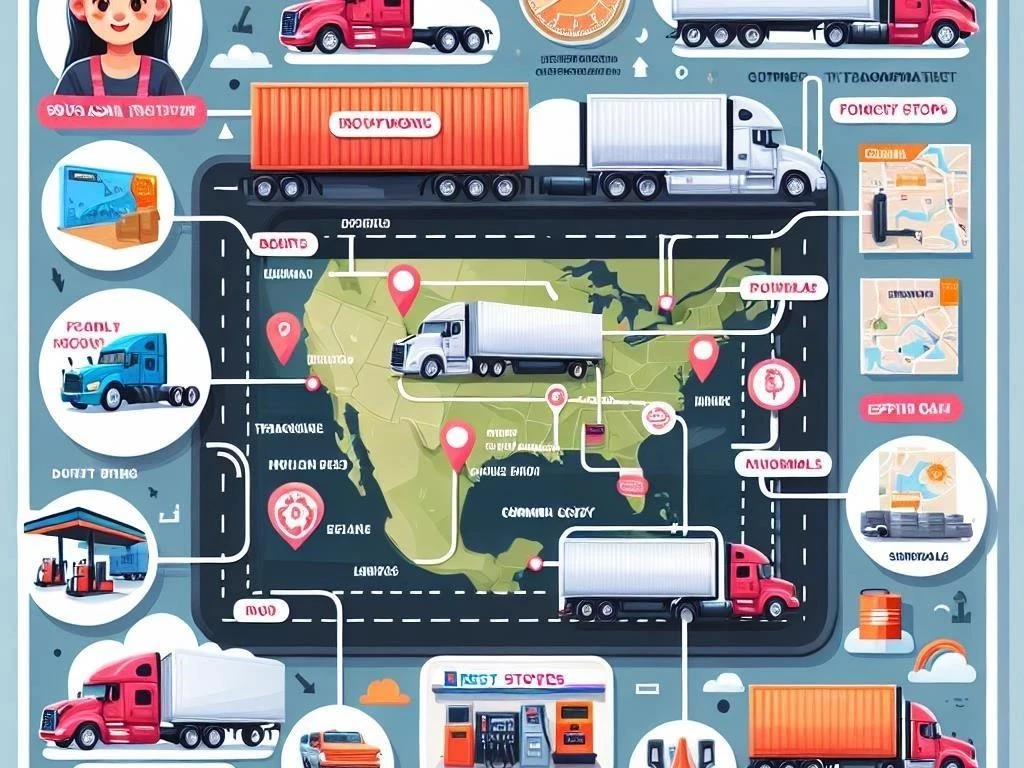
8.2 The Role of Trucking Technology in Route Optimization
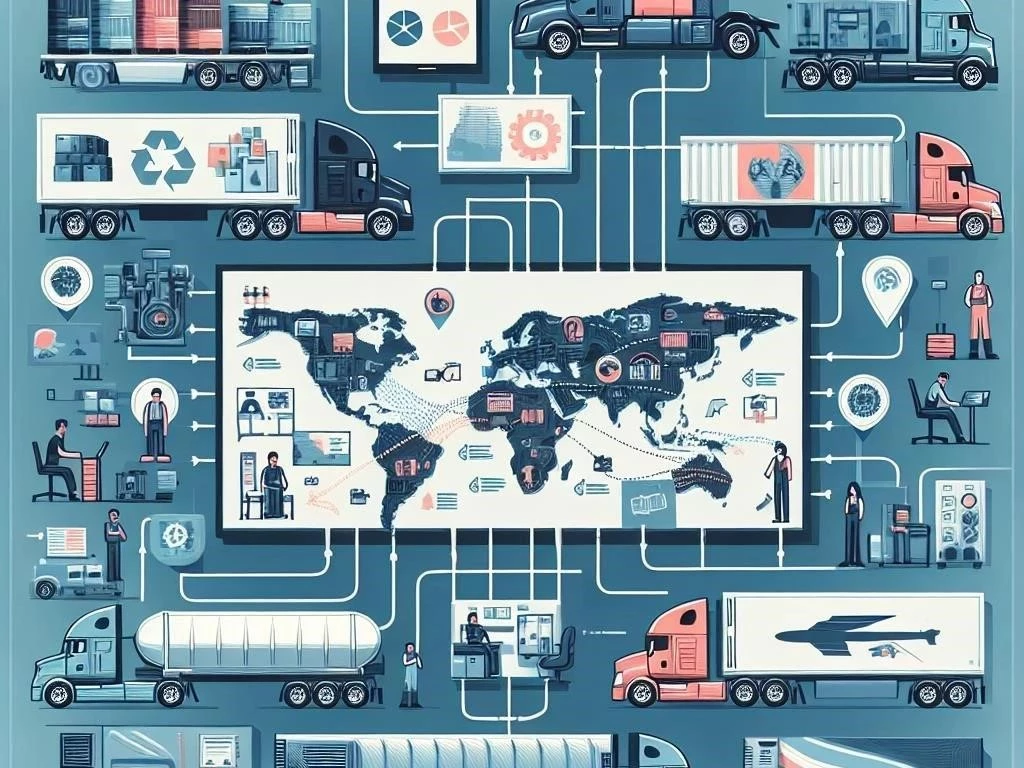
Trucking technology plays a pivotal role in enhancing route optimization, significantly improving operational efficiency. Advanced GPS systems allow real-time tracking of vehicles, helping dispatchers monitor routes and adjust them based on traffic conditions or unforeseen obstacles. Additionally, route optimization software utilizes algorithms to analyze data, determining the most efficient paths for deliveries. Telematics systems collect valuable data on vehicle performance, fuel consumption, and driver behavior, enabling companies to identify areas for improvement. Furthermore, mobile applications provide drivers with up-to-date information on road conditions and delivery schedules, enhancing communication and adaptability. Ultimately, integrating technology into route optimization processes leads to reduced costs and improved delivery efficiency.
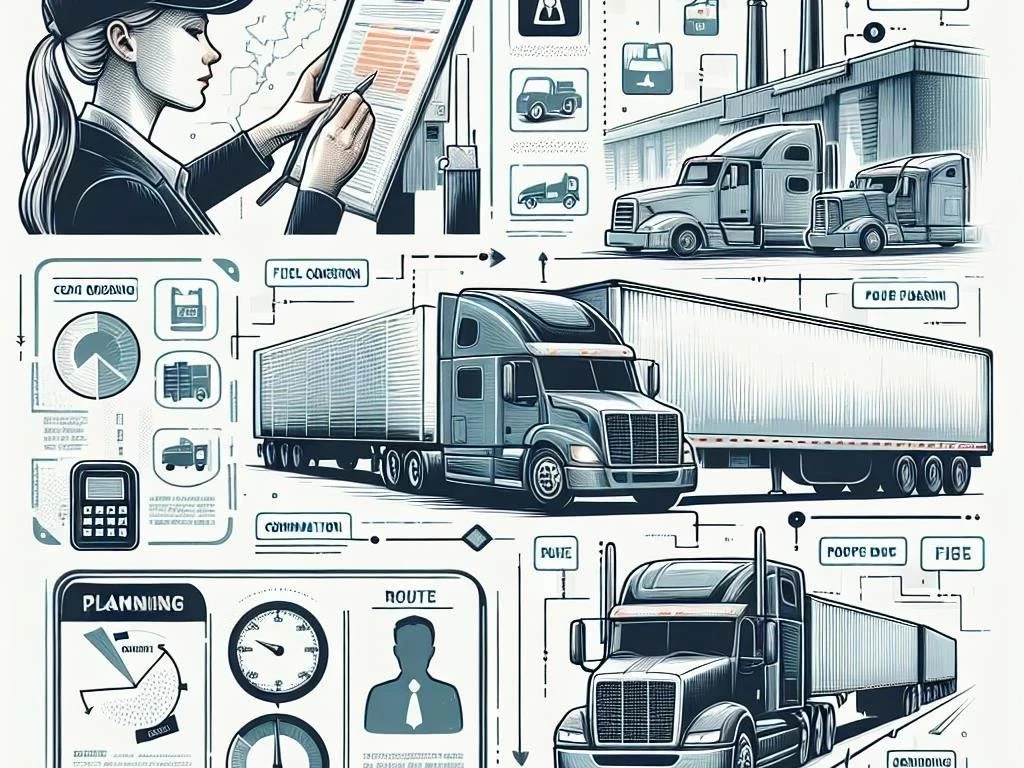
The Role of Freight Brokers in Trucking
Freight brokers serve as intermediaries between shippers and trucking companies, facilitating the transportation of goods efficiently. They play a crucial role in the logistics industry by connecting businesses that need to transport cargo with carriers that can fulfill those needs. Brokers negotiate shipping costs, ensuring that both parties achieve fair pricing while considering factors like distance, load capacity, and delivery timelines. Additionally, they manage documentation and compliance with transportation regulations, simplifying the shipping process for shippers. By leveraging their network of carriers, freight brokers can provide shippers with options that fit their specific requirements. Ultimately, their expertise enhances the efficiency of freight movement within the trucking industry.
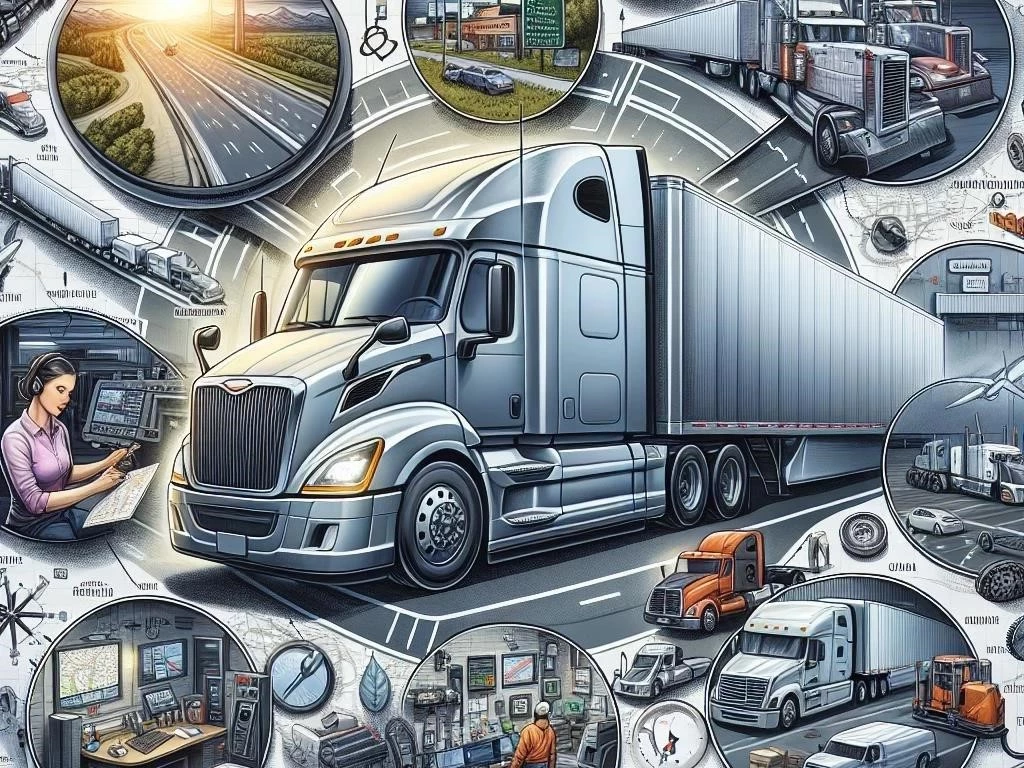
9.1 How Freight Brokers Facilitate Goods Movement

Freight brokers facilitate goods movement by acting as a vital link between shippers and carriers, streamlining the logistics process. They assess the specific transportation needs of shippers, including cargo type, destination, and timing, then match these requirements with appropriate trucking companies. Brokers negotiate rates and terms, ensuring competitive pricing while balancing the needs of both parties. They also handle essential documentation, such as bills of lading and customs paperwork, which simplifies the shipping process for shippers. By utilizing their extensive network of carriers, freight brokers can quickly find available trucks, improving delivery timelines and enhancing overall efficiency. This coordination ultimately ensures timely and effective goods movement.
9.2 Benefits of Working with Freight Brokers
Working with freight brokers offers several advantages for shippers and carriers alike, enhancing overall efficiency in the trucking industry. First, brokers provide access to a vast network of carriers, enabling shippers to find suitable transportation options quickly. This can lead to improved delivery timelines and reduced shipping costs. Second, brokers handle complex logistics tasks, such as negotiating rates and managing paperwork, allowing companies to focus on their core operations. Additionally, freight brokers possess industry expertise and knowledge of market trends, helping shippers make informed decisions. Finally, brokers can adapt to changing demands, ensuring flexibility in transportation solutions, ultimately promoting smoother goods movement and increased satisfaction.
Heavy-Duty Trucks and Load Capacity Considerations
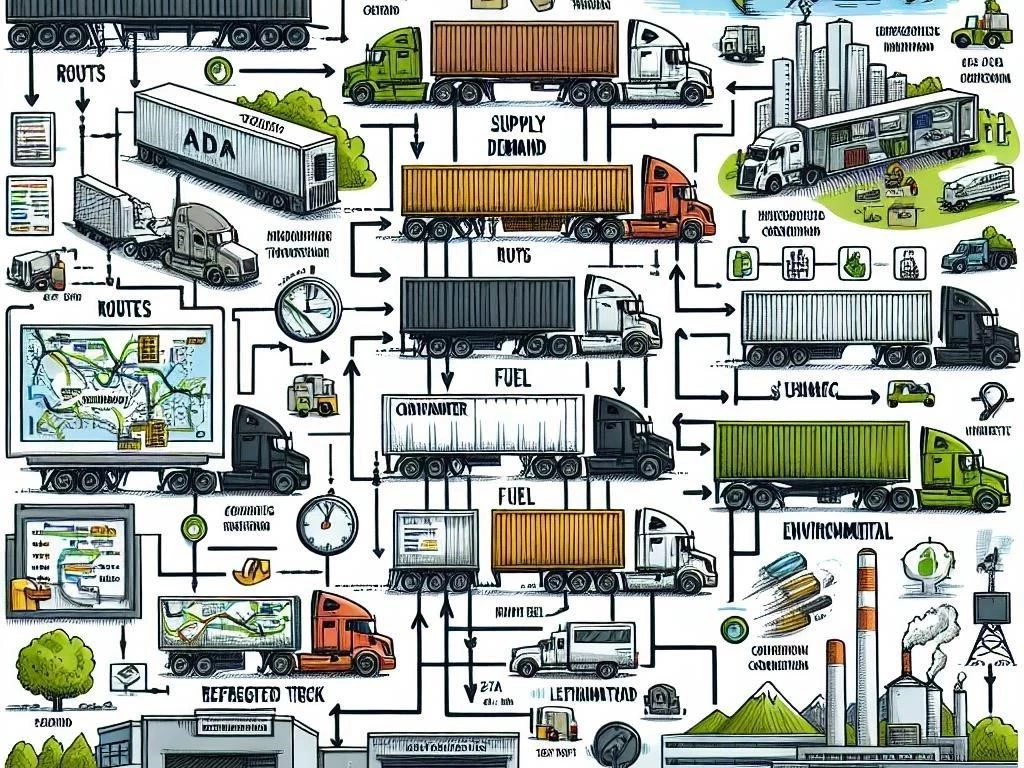
Heavy-duty trucks play a crucial role in the trucking industry, designed specifically for transporting large loads over long distances. Understanding load capacity is essential for ensuring safe and efficient transportation. These trucks typically have a Gross Vehicle Weight Rating (GVWR) that dictates the maximum weight they can safely carry, including cargo and the vehicle’s own weight. Exceeding this limit can lead to safety hazards, increased wear on the vehicle, and potential legal issues. Additionally, factors such as axle configuration and suspension systems influence load distribution, affecting overall stability. Proper load management and adherence to weight regulations are vital for optimizing performance and maintaining compliance in freight transportation.
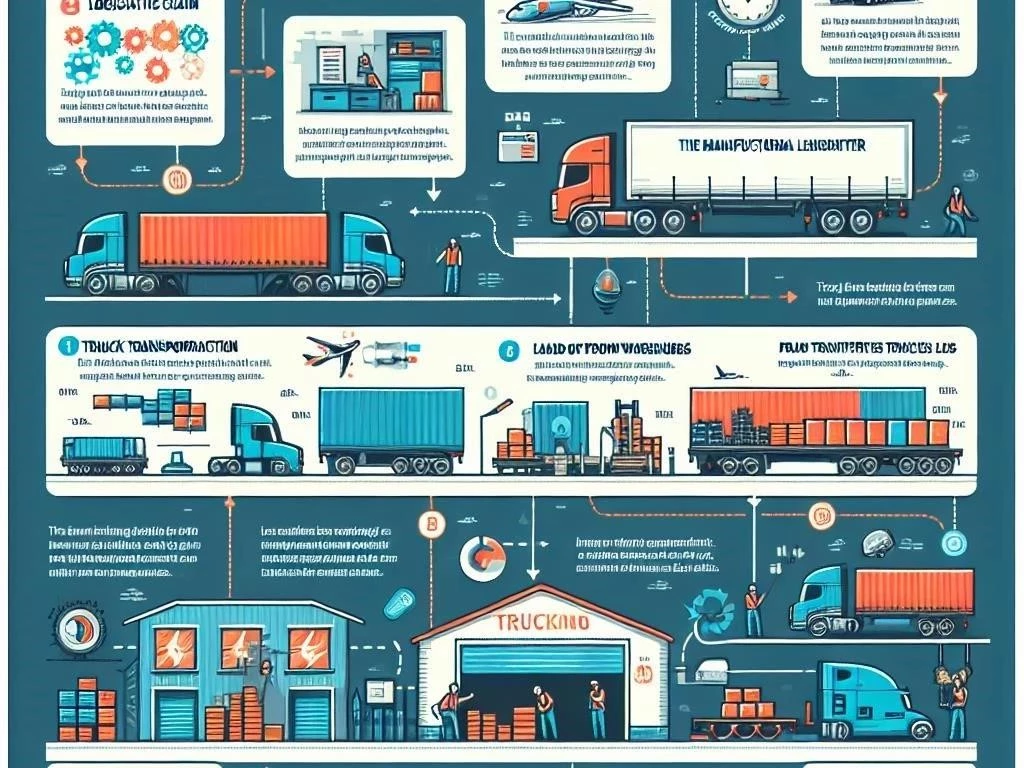
10.1 Overview of Heavy-Duty Trucks in the Industry
Heavy-duty trucks are essential components of the trucking industry, specifically designed for transporting large volumes of cargo across various distances. These trucks typically have a GVWR exceeding 26,000 pounds, making them suitable for long-haul and commercial freight transportation. They come in various configurations, including tractor-trailers, dump trucks, and flatbeds, catering to diverse shipping needs. Equipped with powerful engines and advanced technology, heavy-duty trucks ensure efficient performance and reliability. Additionally, these vehicles often feature enhanced safety systems, such as anti-lock brakes and stability control, to protect drivers and cargo. The growing demand for freight transportation has led to innovations in heavy-duty truck design and efficiency, improving sustainability within the industry.
10.2 Understanding Load Capacity and Its Implications
Understanding load capacity is crucial for trucking companies, as it directly impacts safety, efficiency, and regulatory compliance. Load capacity refers to the maximum weight a truck can carry, influenced by factors such as vehicle design, axle configuration, and materials used. Exceeding this capacity can lead to mechanical failures, increased wear and tear, and safety hazards on the road. Furthermore, regulatory agencies impose strict weight limits, and violations can result in hefty fines and penalties. Proper load distribution is also essential to maintain vehicle stability and prevent accidents. Therefore, companies must train drivers on load management and adhere to weight regulations to optimize performance and ensure safe transportation.
Trends Shaping the Future of Trucking
Several trends are shaping the future of trucking, significantly impacting the industry’s operations and efficiency. One key trend is the increasing adoption of advanced technologies, such as artificial intelligence and automation, which enhance route optimization and vehicle performance. Additionally, sustainability is becoming a priority, with companies investing in eco-friendly practices and alternative fuel sources to reduce their carbon footprint. Moreover, the growing importance of e-commerce is driving demand for faster delivery services, prompting innovations in logistics management. The integration of telematics systems allows for real-time monitoring of vehicle performance and driver behavior, further enhancing safety and efficiency. These trends collectively redefine the landscape of freight transportation.
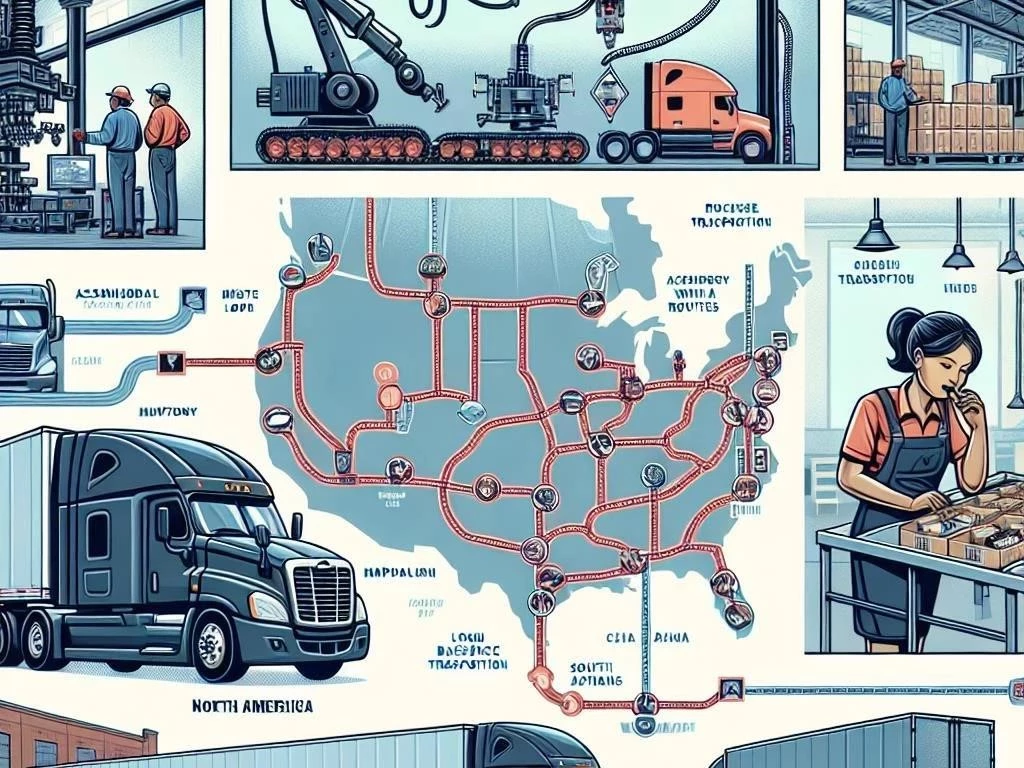
11.1 Emerging Technologies in the Trucking Industry
Emerging technologies are revolutionizing the trucking industry, enhancing efficiency and safety. One significant advancement is the integration of autonomous vehicles, which promise to reduce human error and optimize fuel consumption. Additionally, telematics systems provide real-time data on vehicle performance, allowing for proactive maintenance and improved driver behavior. The use of blockchain technology is also gaining traction, facilitating secure and transparent transactions in freight logistics. Moreover, artificial intelligence is being employed for route optimization, analyzing data to predict traffic patterns and improve delivery times. These technologies not only streamline operations but also contribute to sustainability efforts, making the trucking industry more efficient and environmentally friendly.
11.2 Environmental Trends and Sustainability in Trucking
Environmental trends are increasingly influencing the trucking industry, driving a shift toward sustainability and eco-friendly practices. Companies are adopting alternative fuel sources, such as electric and hydrogen-powered trucks, to reduce greenhouse gas emissions and dependence on fossil fuels. Additionally, many trucking firms are implementing fuel-efficient technologies, including aerodynamic designs and advanced engine systems, to enhance fuel economy. Furthermore, the adoption of route optimization software helps minimize fuel consumption by identifying the most efficient paths for deliveries. Companies are also focusing on reducing waste through better cargo management and recycling initiatives. These sustainability efforts not only benefit the environment but also enhance corporate reputation and meet regulatory requirements.
The future of trucking transportation is poised for significant transformation driven by technological advancements and evolving market demands. As automation and artificial intelligence become more integrated, the industry will see improved efficiency and safety in operations. Sustainability will also play a pivotal role, with companies increasingly adopting eco-friendly practices and alternative fuels to reduce environmental impact. Moreover, the rise of e-commerce continues to shape logistics, pushing for faster delivery solutions and innovative freight management strategies. Embracing these changes will enable trucking companies to remain competitive and responsive to customer needs. Ultimately, the trucking industry’s evolution will enhance the overall efficiency and reliability of goods movement.